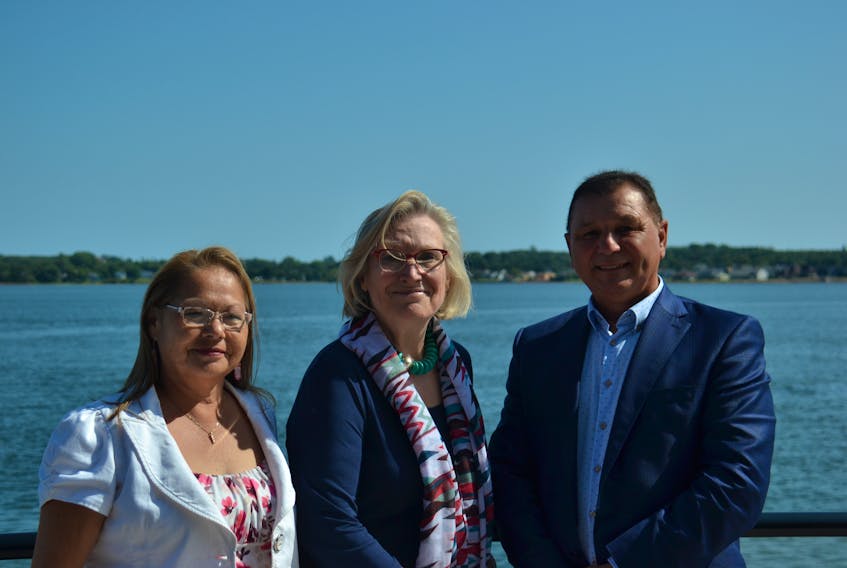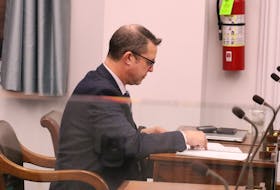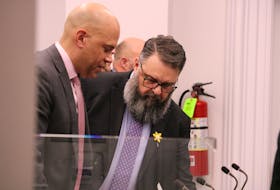Federal Crown-Indigenous Relations Minister Carolyn Bennett is hoping that a new rights framework will spell the end of protracted legal battles between the federal government and Indigenous people in Canada.
Bennett visited P.E.I. on Wednesday, holding meetings with Lennox Island First Nations Chief Matilda Ramjattan and Abegweit First Nations Chief Brian Francis. The visit was part of a cross-Canada consultative tour focused on what is called the “recognition and implementation of Indigenous rights framework”, which the Trudeau government has pledged to put into legislation as early as October.
In a speech last February, Prime Minister Justin Trudeau promised the framework would “make the recognition and implementation of rights the basis for all relations between Indigenous Peoples and the federal government”.
In an interview with The Guardian, Bennett said the framework would offer a legal alternative to the Indian Act, which Trudeau has described as “discriminatory and paternalistic”.
"Part of the legislation is to actually replace previous bad policy," Bennett said.
"Having a better alternative to the Indian Act, but also the claims policy, the inherent rights policy – these have been real irritants to moving to self-determination."
What has complicated relations between the federal government and Indigenous people has been Section 35 of Canada’s 1982 Constitution, which recognized Aboriginal and treaty rights. But, Bennett said the specific way of interpreting Section 35 rights has fallen to the courts; costly and lengthy court battles have largely favoured Indigenous people.
"We have to start by recognizing those rights and then we can eliminate all the time and money spent on court cases," Bennett said.
Since February, Bennett said she has held more than 100 meetings, attended by over 1,500 people, with organizations representing Indigenous people.
Both Francis and Ramjattan said their meetings with the minister were positive.
"She has done her job in terms of P.E.I. – and we can only speak for P.E.I. – but certainly she's engaged us very well in the process and we're quite able to move forward," Francis said, following his meeting with the minister.
The Mi’kmaq have never ceded land or rights to any level of the Canadian government.
“We're not looking to make new treaties. We want to implement the one that we have," Ramjattan said.
However, not everyone was pleased with the minister’s visit.
Bennett’s schedule did not include a meeting with the Native Council of Prince Edward Island (NCPEI), whose membership includes status and non-status Indigenous people living off-reserve. Bennett said this was because her mandate was to consult with Indigenous groups that had rights under Section 35 of the Constitution.
Lisa Cooper, president and chief of the council, said the Daniels Decision, a 2016 Supreme Court decision that ruled that Métis and non-status Indians should be considered “Indians” under the constitution, obliged government to engage with non-status Indigenous people.
“I'm not sure where Bennett is coming and saying that the Native Council isn’t a rights holder,” Cooper said.
“We are most absolutely duly rights holders. We represent the off-reserve status and non-status that are direct heirs to the peace and friendship treaties."
Cooper said non-status and off-reserve indigenous people are in a “jurisdictional wasteland” because they are not under jurisdiction of band councils or federal government policy. She says the NCPEI has a membership of close to 1,000 people on P.E.I.
When asked about the NCPEI, Bennett said a separate consultation process would focus on urban Indigenous policy, as well as programs and services. This process will be led by Jane Philpott, minister of Indigenous services.
"My job is to move on self-determination on the governance piece of rights recognition and dealing with rights-holders,” Bennett said.









